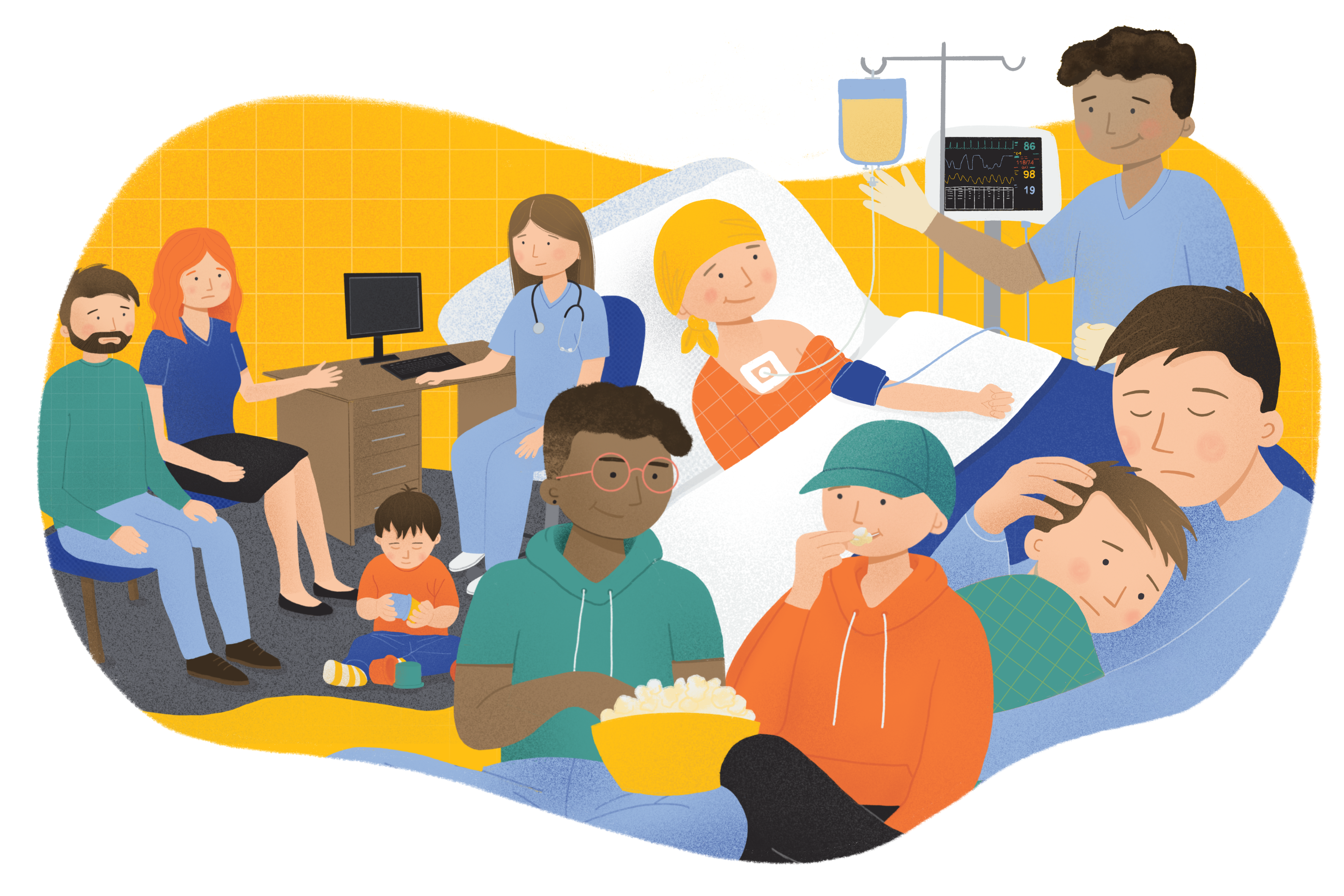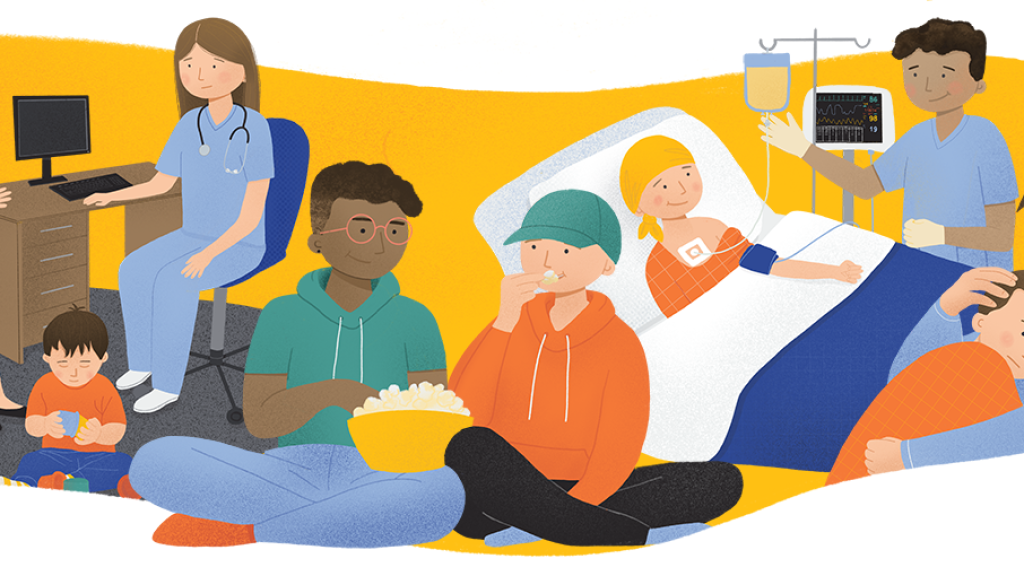
Children's cancer
If your child has been diagnosed with cancer or you're worried about children's cancer, we have information and support to help.
About children’s cancer
Cancer is rare in children. Around 190 children under the age of 16 and around 70 teenagers aged between 15 and 19 are diagnosed each year in Ireland. Children's cancers are different to adult cancers. They often affect different parts of the body and behave differently. The most common tumours in children are brain and central nervous system tumours.
In most cases we don’t know why children get cancer. Unfortunately, there is nothing a parent can do to prevent childhood cancer, as the risk factors linked to childhood cancers are not things we can control. Read more about children’s cancers.
Our Services Our Young Adult Services
What are the symptoms of children’s cancer?
Although cancer is rare in children, if you’re worried about cancer or if your child has unusual changes in their body, it’s always best to talk to your doctor. Read more about symptoms of children’s cancer.
How are children’s cancers diagnosed?
Tests that can diagnose cancer in children include blood tests, scans and biopsies (taking a sample of cells from the body). The type of tests depend on which cancer is suspected. Tests are usually done in CHI at Crumlin, Dublin. If a brain tumour is suspected, you may go to CHI at Temple St Hospital in Dublin. Read more about tests and how children’s cancer is diagnosed.
Will my child get better?
There have been huge improvements in cancer treatments for children in the past 50 years. As a result, more children than ever are surviving cancer. Some forms of cancer are now completely curable. Research is also continuing to improve treatments and reduce side-effects. Every child is different and your child's doctor will talk to you about their illness and the likely success of treatment.
More children than ever are surviving cancer. Treatment is better than ever and around 8 in 10 children will be completely cured. Every child is different and your child’s doctor will talk to you about the likely success of treatment.
After a children's cancer diagnosis

What happens after diagnosis?
The time after you find out your child has cancer can be overwhelming. You will meet their healthcare team to discuss and plan their treatment. Treatment may start quite soon, and you may need to stay at the hospital. We have information on what to expect and support to help you cope with your feelings.

Treatment
Starting treatment is a huge change in your family’s life. We have advice on preparing for treatment, types of treatment and coping with life during treatment. Read more about treatment.

Coping practically and emotionally
While you are focused on your child and their treatment, it can be hard to deal with your own feelings and to manage practical matters. We have tips to help and information on where to get support.

After treatment
After treatment your child will continue to have follow-up care. This is also a time where your family will adjust emotionally and practically as you move towards a new normal.
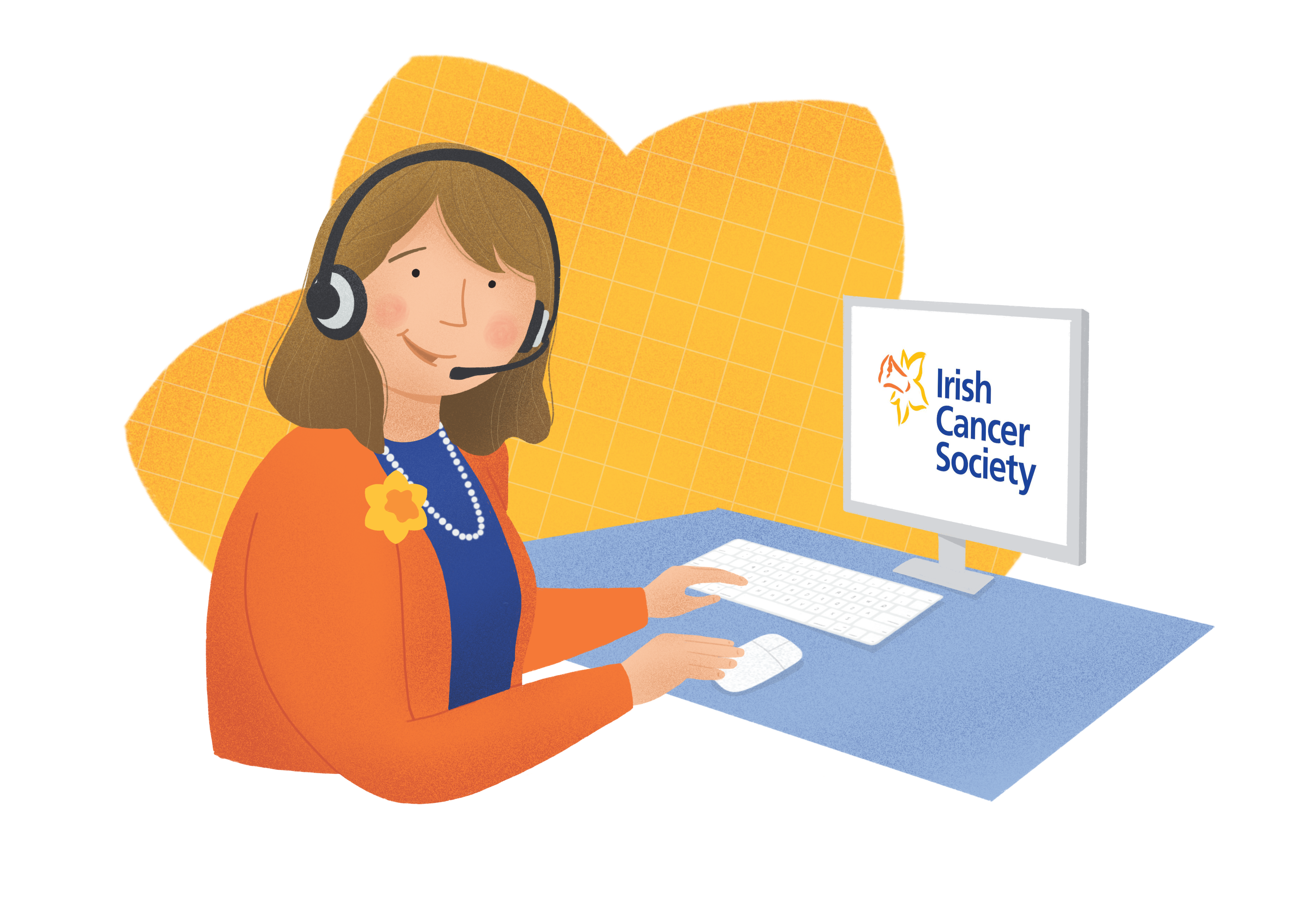
Our services for children and families
We have a range of free information and support services for children and families affected by cancer.



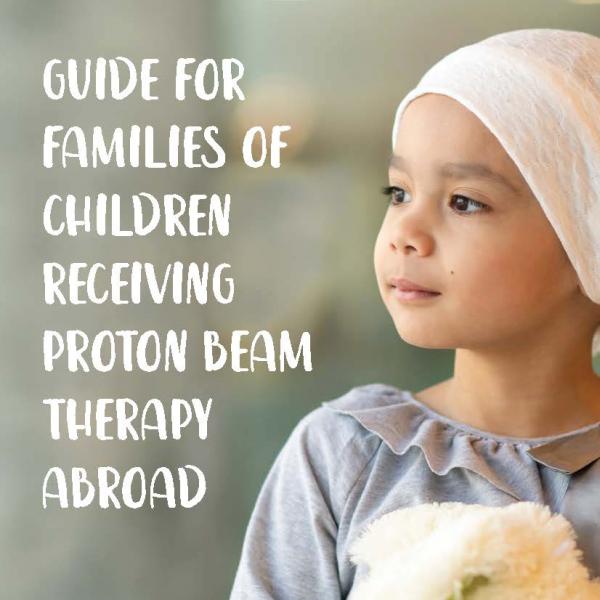
(Available to download only.)


More information about children's cancer
Signs and symptoms, risk factors of childhood cancer, and how childhood cancer is diagnosed.
Treating children's cancer
Types of treatment, side-effects and understanding medical language.
More information about coping with children's cancers
Coping with your child's diagnosis, coping emotionally and services for children with cancer.
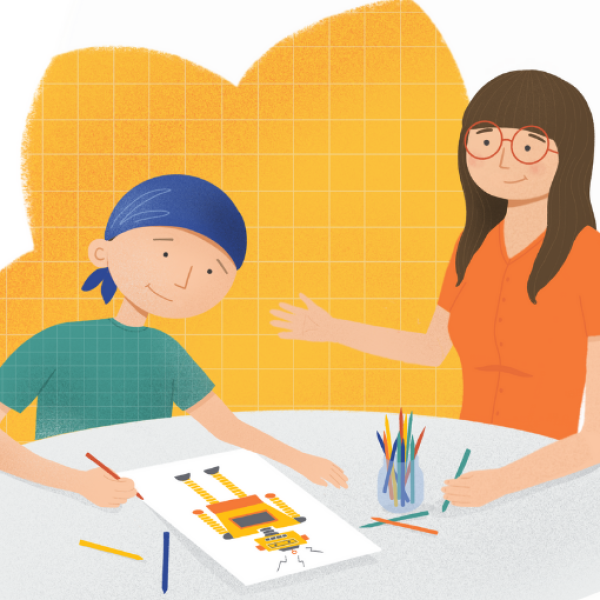
Creative Arts Therapy
The Irish Cancer Society offers free Creative Arts Therapy support for Children, Adolescents and Young Adults (CAYA) with or in survivorship of cancer (0-24) and their siblings.
Creative Arts Therapies include; Art Therapy, Dramatherapy and Music Therapy and can be used to support the psychosocial needs of a young person.
Learn about Creative Arts Therapy

Support for teachers
Cancer in the classroom is an Irish Cancer Society video guide to help school staff to support children and young people affected by cancer.
Click here to watch the videos.
For more information
Phone
1800 200 700


